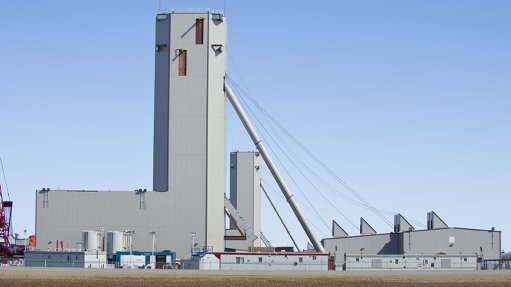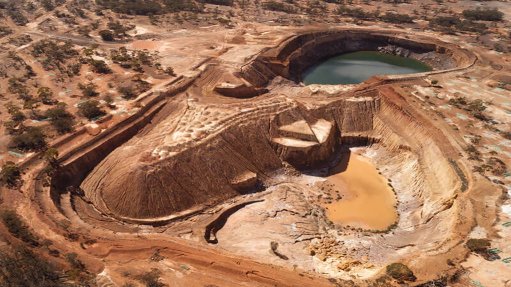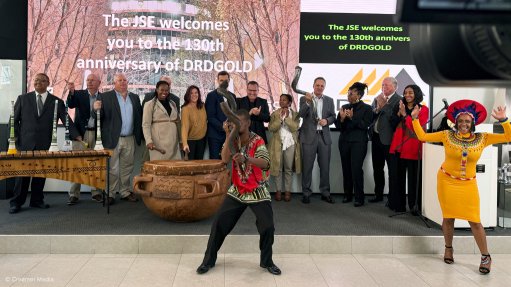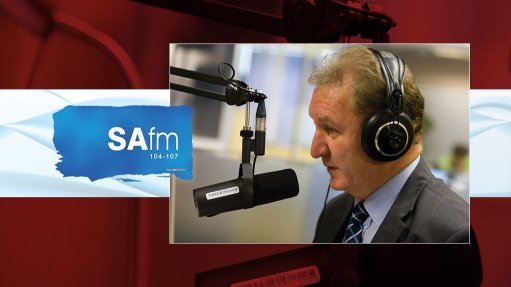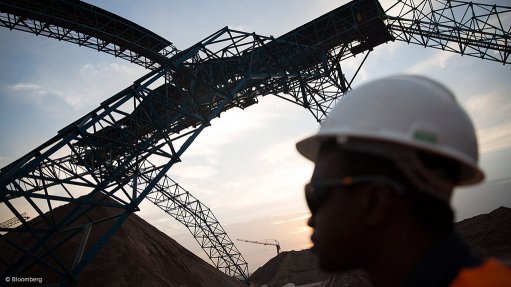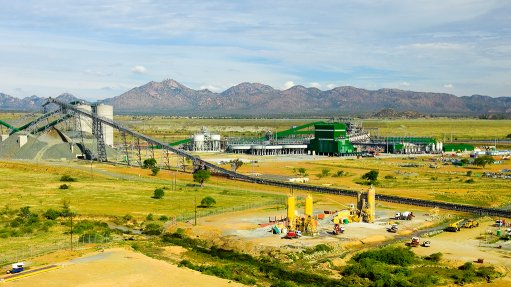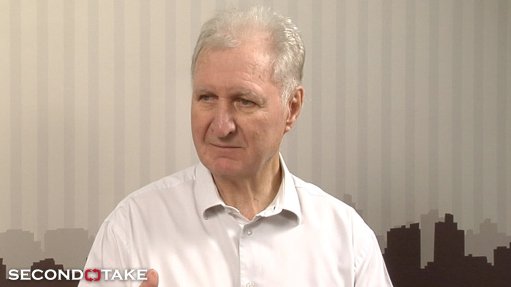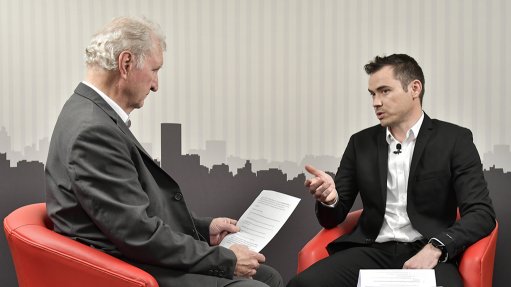Power utility should continue investment – consulting group

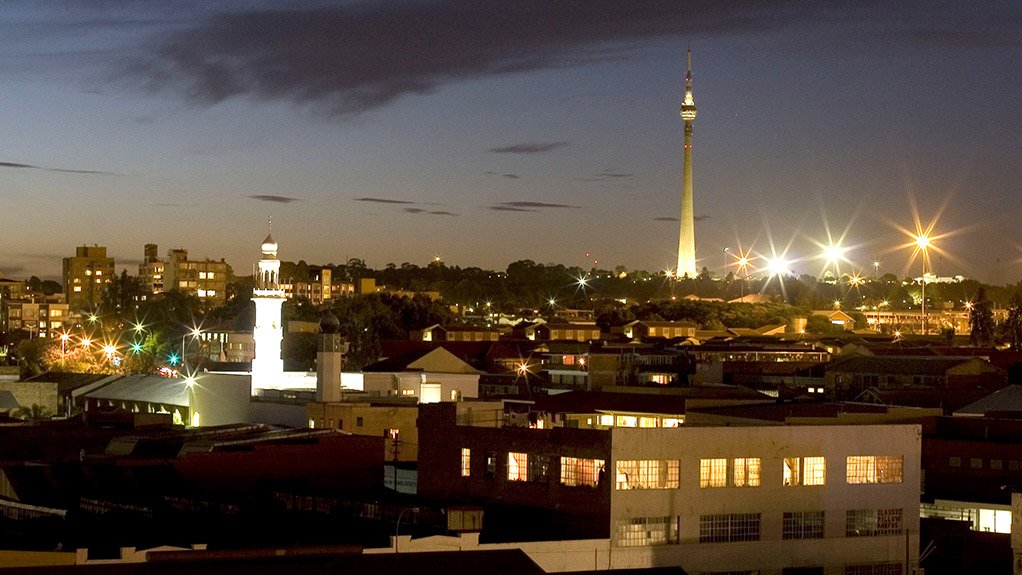
LIGHTS ON Consulting firm Frost & Sullivan estimates that Eskom will be able to manage the grid this winter
Despite differing views in industry, State-owned power generation utility Eskom can still generate sufficient power to keep the lights on, even while functioning on a tight reserve margin and with industry not firing on all cylinders, states global growth consulting firm Frost & Sullivan consulting manager for energy & environment Johan Muller.
“When one takes into account Eskom’s primary functions of generating and supplying electricity, then I would rate Eskom’s performance at 65%,” he says, explaining that the current performance rating of Eskom is determined using global power generation utility standards.
However, compared with African standards of power generation performance, Eskom’s rating will be higher than that of other African countries. This higher rating is because Nigeria, which surpassed South Africa last month as the number one African country in terms of gross domestic product, has severe electricity shortages – even with the recent shift towards privatisation, he says.
Citing an article, titled ‘Endless agony as power network collapses’, from media company Vanguard in April, he points out that “the company conducted a survey which found that Nigerians have only about two hours of electricity supply a week, while some areas have gone without power for about three weeks”.
Continuing Investment
Muller states that several factors have contri- buted towards Eskom’s current position, such as an ageing legacy infrastructure, rapid expan- sion of the economy in the late 1990s and early 2000s, a shifting landscape with the introduction of privatisation and the availability of certain skill sets, as well as maintenance and refurbishment backlogs, besides others.
In addition, continuous high rainfall in Mpumalanga earlier this year impacted on coal quality, challenging coal-fired power stations to effectively handle and feed wet coal to the boilers at the power stations. This resulted in a power emergency on March 6 and key power stations in the area operating at additional reduced outputs, former Eskom CEO Brian Dames said in a report on the utility’s state, presented during a media conference in Johannesburg in the same month.
To manage these challenges, Muller emphasises that Eskom should continue its invest- ment into new energy-generation plants, such as Medupi and Kusile, while promoting demand-side management initiatives, retaining key staff members and following global best practices in the utility space.
Further, he highlights the vital necessity of the new builds, as the current energy demand is outstripping energy supply. “For South Africa to stay competitive on the global stage, we need to have a stable source of baseload power,” he says, suggesting that supply should not only be stable but input costs and tariffs should also be an enabling factor, drawing industry to invest in South Africa.
“While the new builds send a message to the world, saying that South Africa is investing in its future, this message should be as clear as possible, drawing foreign direct investment into the country and helping to strengthen consumer and investor confidence,” he emphasises.
Managing the Grid
While the new build projects are still in various phases of construction, Muller highlights two scenarios that will each impact differently on Eskom’s ability to currently manage the electricity grid.
“The first scenario concerns continuous, customary business, where businesses are allowed to consume power to meet their individual requirements. “However, the country has reached the stage where the grid cannot cope with the required demand and the negligible reserve margin is testament to this,” he says, adding that several businesses are currently less productive than what they could be.
The second scenario, he says, involves Eskom intervening to manage the load using several measures, ranging from the contractual clauses in power purchase contracts, that enables Eskom to not provide power for certain customers when the grid is strained, to installing time-of-use tariffs.
Although Eskom reported in March that the system would remain tight not only throughout this winter but also until a substantial part of the new build programme delivers capacity, Muller estimates that Eskom will be able to manage the grid this winter.
However, he highlights the uncertainty as to whether industry will be satisfied with Eskom’s management methods. “If industry decides to ignore Eskom’s request for energy savings, then the grid will collapse this winter, as the two parties have different objectives. However, Eskom and industry are working closely together to avoid outages,” he notes.
Further, Muller points out that, as industrial users in South Africa consume the most power, Eskom will need to focus on the power generation programmes which maintain the competi- tiveness of industrial users when measured against global standards, but which also support Eskom’s long-term sustainability.
“This should include structuring agreements so that both parties benefit from nonstandard tariffs and reduced operating times,” he says, adding that there is a need for more awareness on energy in general, such as informing end- users of the amount of power used by certain machines.
“A more sophisticated individual end-user translates into a more sophisticated commercial end-user, which is to the benefit of Eskom and the commercial business,” he notes.
While Muller emphasises that South Africa should have a generation mix of baseload power from coal and power from independent power producers, as the country has wind and sun resources that can be used for power generation, he notes that the viability of other power generation options, such as nuclear power, remain uncertain.
“Nuclear power is a viable, theoretical option for South Africa, but it is not practically viable, based on the cost and time overruns of the Medupi and Kusile power stations.”
Further, the time required to build a nuclear plant would be too extensive, while the cost of project management and the environmental and safety risks are too high, compared with alternatives, Muller estimates.
“In addition, indications point towards South Africa having a slower economic growth rate and, therefore, smaller figures of expected power demand in the medium to longer term, which – to a degree – also erode the need for a nuclear station.
“However, with dynamic markets, the energy mix should also be flexible and should, for example, government’s National Development Plan gain momentum and stimulate the economy, nuclear could become more viable,” Muller concludes.
Comments
Announcements
What's On
Subscribe to improve your user experience...
Option 1 (equivalent of R125 a month):
Receive a weekly copy of Creamer Media's Engineering News & Mining Weekly magazine
(print copy for those in South Africa and e-magazine for those outside of South Africa)
Receive daily email newsletters
Access to full search results
Access archive of magazine back copies
Access to Projects in Progress
Access to ONE Research Report of your choice in PDF format
Option 2 (equivalent of R375 a month):
All benefits from Option 1
PLUS
Access to Creamer Media's Research Channel Africa for ALL Research Reports, in PDF format, on various industrial and mining sectors
including Electricity; Water; Energy Transition; Hydrogen; Roads, Rail and Ports; Coal; Gold; Platinum; Battery Metals; etc.
Already a subscriber?
Forgotten your password?
Receive weekly copy of Creamer Media's Engineering News & Mining Weekly magazine (print copy for those in South Africa and e-magazine for those outside of South Africa)
➕
Recieve daily email newsletters
➕
Access to full search results
➕
Access archive of magazine back copies
➕
Access to Projects in Progress
➕
Access to ONE Research Report of your choice in PDF format
RESEARCH CHANNEL AFRICA
R4500 (equivalent of R375 a month)
SUBSCRIBEAll benefits from Option 1
➕
Access to Creamer Media's Research Channel Africa for ALL Research Reports on various industrial and mining sectors, in PDF format, including on:
Electricity
➕
Water
➕
Energy Transition
➕
Hydrogen
➕
Roads, Rail and Ports
➕
Coal
➕
Gold
➕
Platinum
➕
Battery Metals
➕
etc.
Receive all benefits from Option 1 or Option 2 delivered to numerous people at your company
➕
Multiple User names and Passwords for simultaneous log-ins
➕
Intranet integration access to all in your organisation






